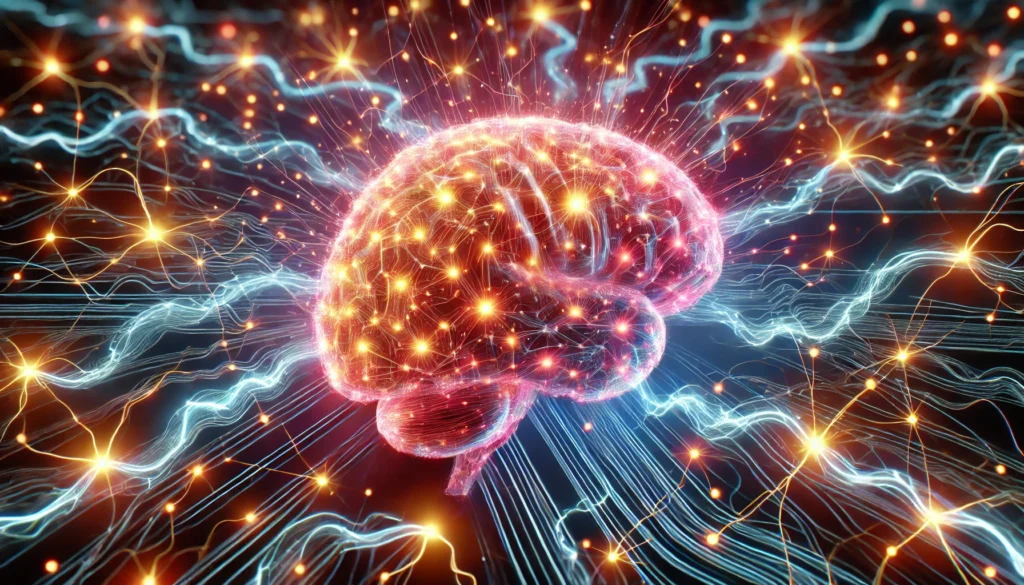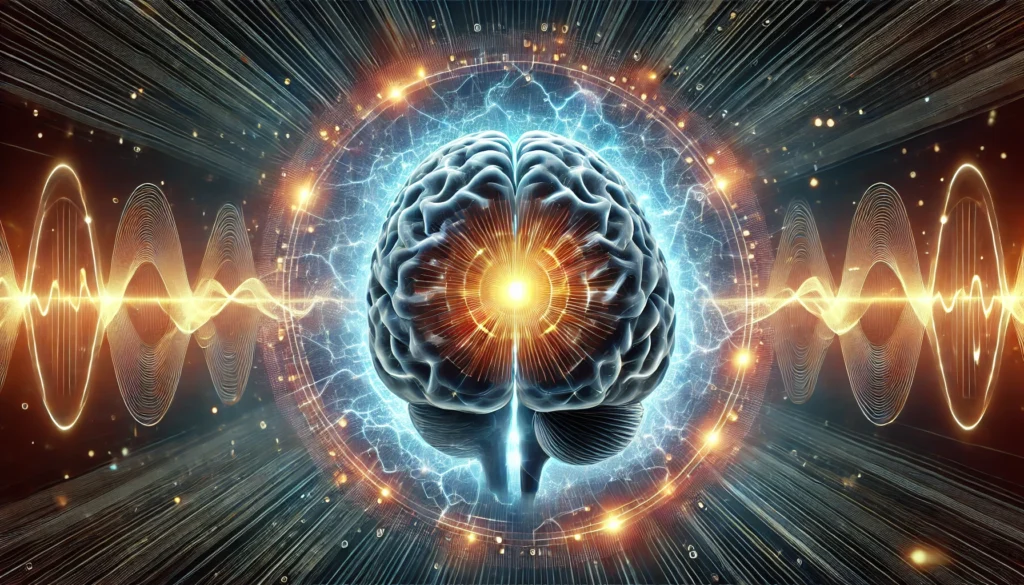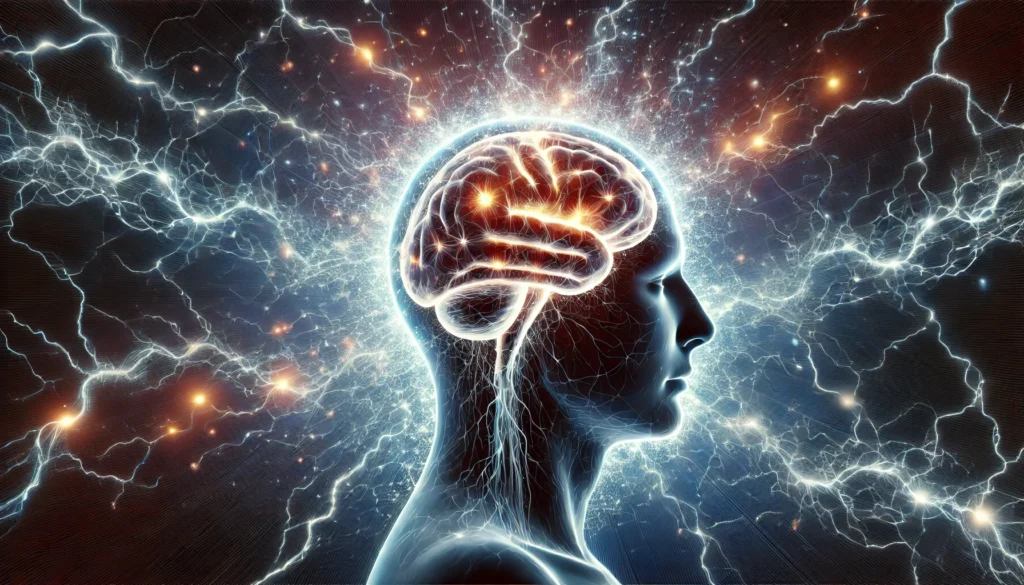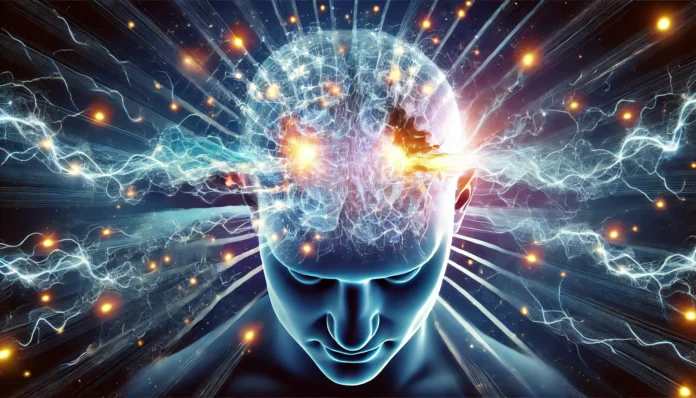The Brain’s Energy Demand: An Overview
The human brain is a powerhouse of activity, orchestrating every function of the body while processing vast amounts of information every second. Despite comprising only about 2% of total body weight, the brain consumes approximately 20% of the body’s total energy supply. This disproportionate energy demand raises an important question: how much energy does the brain use, and what does the brain use for energy? Understanding these intricacies is essential for optimizing cognitive function, improving longevity, and maintaining overall brain health.
You may also like : Best Things for Brain Health: Expert-Backed Strategies to Keep Your Mind Sharp
Neuroscientists have long been fascinated by the brain’s high energy consumption, which is primarily driven by its extensive network of neurons and synaptic connections. Unlike muscles that can rest between exertions, the brain remains active around the clock, ensuring that vital processes such as breathing, heartbeat regulation, and sensory processing continue uninterrupted. As researchers uncover more about the metabolic demands of the brain, it becomes increasingly clear that maintaining an adequate and steady energy supply is crucial for cognitive performance, memory retention, and mental clarity.
How Much Energy Does the Brain Use? Breaking Down the Numbers
On average, the human brain requires about 20 watts of power, which is equivalent to a dim light bulb. However, this energy requirement varies depending on factors such as age, cognitive activity, and overall health. Studies show that the brain consumes approximately 300 to 500 kilocalories per day, a significant portion of the body’s total caloric expenditure. This energy is derived primarily from glucose metabolism, although alternative energy sources can come into play during fasting states or metabolic adaptations.
The high energy consumption of the brain is due to the rapid firing of neurons and the maintenance of ionic gradients across cell membranes. A significant portion of this energy goes toward synaptic transmission, which enables communication between neurons. The brain’s ability to efficiently process and store information depends on these energy-intensive processes. Disruptions in energy supply, whether due to poor diet, metabolic disorders, or neurodegenerative diseases, can impair cognitive function and contribute to mental fatigue.
What Does the Brain Use for Energy? The Role of Glucose and Ketones
Glucose is the primary energy source for the brain under normal physiological conditions. This simple sugar is obtained from dietary carbohydrates and transported to the brain via the bloodstream. Once inside brain cells, glucose undergoes glycolysis, the Krebs cycle, and oxidative phosphorylation to generate adenosine triphosphate (ATP), the fundamental unit of cellular energy.
However, the brain also has the ability to utilize ketones as an alternative fuel source. Ketones are produced by the liver during periods of fasting, carbohydrate restriction, or prolonged exercise. This metabolic adaptation ensures that the brain remains functional even when glucose availability is low. Research indicates that ketone bodies, such as beta-hydroxybutyrate, can enhance mitochondrial function and provide a neuroprotective effect, potentially benefiting individuals with neurodegenerative conditions such as Alzheimer’s disease and Parkinson’s disease.

The Relationship Between Brain and Energy: Cognitive Performance and Fatigue
Given its high energy demands, the brain is particularly sensitive to fluctuations in energy availability. Low blood sugar levels, also known as hypoglycemia, can lead to symptoms such as confusion, dizziness, and difficulty concentrating. On the other hand, excessive glucose intake can contribute to insulin resistance and metabolic disorders, negatively impacting brain health in the long run.
Optimizing brain energy supply is essential for sustaining cognitive performance, especially in demanding environments that require prolonged focus and problem-solving. Studies suggest that a diet rich in complex carbohydrates, healthy fats, and proteins can provide a steady energy supply, preventing drastic fluctuations in blood sugar levels. Additionally, lifestyle factors such as regular physical activity, sufficient sleep, and stress management play a crucial role in maintaining optimal brain energy metabolism.
The Impact of Aging on Brain Energy Utilization
As individuals age, changes in brain metabolism can affect cognitive function and overall energy efficiency. Research indicates that mitochondrial dysfunction, oxidative stress, and decreased glucose metabolism contribute to age-related cognitive decline. This decline is particularly evident in neurodegenerative diseases, where impaired energy production exacerbates symptoms such as memory loss and reduced mental agility.
One strategy for counteracting these effects is to enhance mitochondrial function through lifestyle interventions. Nutritional approaches, including ketogenic diets and intermittent fasting, have been explored for their potential to improve brain energy metabolism and slow cognitive aging. Additionally, regular cognitive engagement through activities such as reading, learning new skills, and problem-solving exercises can help sustain neural plasticity and energy efficiency in the aging brain.

Practical Strategies for Enhancing Brain Energy Efficiency
- Balanced Nutrition: A diet rich in whole foods, including lean proteins, healthy fats, and complex carbohydrates, can provide a consistent and sustainable energy source for the brain.
- Physical Exercise: Regular aerobic activity has been shown to enhance blood flow to the brain, improve mitochondrial function, and support overall cognitive health.
- Adequate Sleep: Sleep is essential for energy restoration, memory consolidation, and the removal of metabolic waste products that accumulate in the brain throughout the day.
- Cognitive Stimulation: Engaging in intellectually stimulating activities can promote neural connectivity and optimize energy utilization.
- Stress Management: Chronic stress can deplete brain energy reserves and impair cognitive function. Meditation, mindfulness, and relaxation techniques can mitigate these effects.
Frequently Asked Questions: Understanding Brain Energy Consumption
1. Why does the brain require so much energy compared to other organs?
The brain’s energy demand is disproportionately high because it is constantly active, even during sleep. Unlike muscles, which can rest between physical exertions, the brain is responsible for continuous processes such as sensory perception, memory formation, and decision-making. The complexity of neural communication requires a steady energy supply to sustain synaptic transmission and maintain electrical gradients across neurons. The metabolic processes that support cognitive function, including the synthesis and recycling of neurotransmitters, further contribute to the brain’s high energy consumption. This demand highlights the intricate relationship between the brain and energy, emphasizing the need for consistent nutrient intake to support cognitive health.
2. Can the brain function without glucose, and if so, what alternative fuel sources does it use?
While glucose is the brain’s primary energy source, it is not the only one it can use to function effectively. During periods of fasting, prolonged exercise, or low carbohydrate intake, the liver produces ketone bodies, which serve as an alternative fuel. Ketones, such as beta-hydroxybutyrate, are metabolized by brain cells to produce ATP, ensuring that cognitive function remains stable even when glucose availability is reduced. Additionally, lactate, which is produced during intense physical activity, can also be utilized by the brain as an energy source. Understanding what the brain uses for energy beyond glucose provides insight into dietary strategies that can optimize mental performance.
3. How does physical activity influence brain energy metabolism?
Engaging in regular physical activity enhances brain energy efficiency by improving blood circulation and increasing oxygen supply to neurons. Exercise also promotes the release of neurotrophic factors, such as brain-derived neurotrophic factor (BDNF), which supports mitochondrial health and improves the utilization of glucose and ketones. Additionally, moderate-intensity aerobic exercise has been shown to increase insulin sensitivity, allowing the brain to more effectively regulate its energy needs. Since maintaining an optimal balance between brain and energy consumption is essential for cognitive performance, incorporating movement into daily routines can improve mental clarity and resilience against age-related decline. Long-term exercise habits have even been linked to a reduced risk of neurodegenerative diseases.
4. Does diet play a role in improving brain energy efficiency?
Yes, diet plays a crucial role in optimizing brain function by ensuring a steady supply of essential nutrients that support energy metabolism. A well-balanced diet rich in omega-3 fatty acids, antioxidants, and complex carbohydrates helps stabilize blood sugar levels and prevent cognitive fatigue. Nutrients such as magnesium, vitamin B12, and choline enhance mitochondrial efficiency, supporting the production of ATP within neurons. Additionally, consuming medium-chain triglycerides (MCTs), found in coconut oil, has been shown to provide an immediate alternative energy source for the brain. Understanding how much energy the brain uses and how dietary choices impact its function can help individuals make informed decisions about nutrition for cognitive longevity.
5. How does sleep affect the brain’s energy supply?
Sleep is essential for restoring brain energy reserves and facilitating the removal of metabolic waste products accumulated throughout the day. During deep sleep, cerebrospinal fluid circulation increases, flushing out toxins that can interfere with mitochondrial function and energy production. Moreover, sleep helps regulate glucose metabolism, ensuring that neurons have sufficient fuel upon waking. Chronic sleep deprivation disrupts this balance, leading to cognitive impairments such as memory deficits, difficulty concentrating, and increased susceptibility to neurodegenerative conditions. Given the connection between brain and energy metabolism, prioritizing high-quality sleep is critical for maintaining long-term cognitive function and overall mental well-being.
6. What role do mitochondria play in brain energy metabolism?
Mitochondria are the powerhouses of brain cells, responsible for generating ATP through oxidative phosphorylation. Since neurons have an exceptionally high energy demand, their mitochondria must function efficiently to sustain synaptic activity and neurotransmission. Impaired mitochondrial function, often due to oxidative stress or aging, can reduce energy availability, leading to cognitive decline and neurodegenerative diseases. Recent research suggests that certain dietary and lifestyle interventions, such as intermittent fasting and cold exposure, can enhance mitochondrial biogenesis and improve brain resilience. Understanding what the brain uses for energy at a cellular level can help in developing strategies to support cognitive performance and longevity.
7. Can cognitive training influence the brain’s energy efficiency?
Cognitive training, including activities such as puzzles, memory exercises, and problem-solving tasks, enhances the brain’s ability to allocate energy resources efficiently. Engaging in mentally stimulating activities increases synaptic plasticity, encouraging neurons to form new connections and optimize their metabolic processes. Studies indicate that lifelong learning and intellectual engagement can delay cognitive decline by improving mitochondrial function and glucose metabolism within brain cells. Additionally, cognitive training has been linked to greater neurovascular coupling, which enhances oxygen and nutrient delivery to active brain regions. As research continues to explore the relationship between the brain and energy expenditure, cognitive training remains a promising approach for maintaining mental sharpness.
8. How do aging and neurodegenerative diseases impact brain energy metabolism?
Aging is associated with a decline in mitochondrial efficiency, leading to reduced ATP production and increased oxidative stress within the brain. This decline contributes to slower cognitive processing, memory impairments, and susceptibility to neurodegenerative diseases such as Alzheimer’s and Parkinson’s. Research suggests that insulin resistance in the brain, often linked to metabolic disorders like type 2 diabetes, further exacerbates energy deficits. Emerging treatments, including ketogenic diets and metabolic therapies, aim to counteract these effects by providing alternative fuel sources to maintain brain function. Understanding how much energy the brain uses at different life stages can inform preventive strategies to sustain cognitive health in aging populations.
9. Can stress and mental fatigue deplete the brain’s energy reserves?
Chronic stress and mental fatigue impose a significant burden on brain energy metabolism, leading to reduced cognitive efficiency and impaired decision-making. The brain requires a steady supply of energy to manage stress-related responses, and prolonged exposure to high cortisol levels can disrupt glucose metabolism. Over time, this imbalance may contribute to burnout, decreased attention span, and emotional exhaustion. Practices such as mindfulness meditation, deep breathing, and nature exposure have been shown to reduce stress-related energy depletion by enhancing neurochemical balance. By understanding what the brain uses for energy and how stress affects its metabolism, individuals can implement effective strategies to maintain mental endurance.
10. What are the future implications of research on brain energy metabolism? Advancements in neuroscience and metabolic research are shedding light on novel ways to optimize brain energy efficiency. Emerging fields such as bioenergetics and neurotechnology are exploring interventions that enhance mitochondrial function, including photobiomodulation (light therapy) and metabolic supplementation. Personalized nutrition plans tailored to an individual’s genetic predisposition may soon offer targeted strategies for sustaining cognitive health. Additionally, AI-driven cognitive enhancement tools are being developed to track brain and energy fluctuations in real-time, allowing individuals to optimize their mental performance. As our understanding of brain energy metabolism evolves, future breakthroughs may revolutionize treatments for cognitive disorders and enhance overall brain longevity.

Conclusion: Harnessing Brain Energy for Longevity and Cognitive Excellence
Understanding how much energy the brain uses and what it relies on for fuel is key to optimizing cognitive function, enhancing mental clarity, and supporting long-term brain health. The intricate relationship between the brain and energy underscores the importance of maintaining a well-balanced diet, engaging in physical and cognitive activities, and adopting lifestyle habits that promote efficient energy metabolism.
As scientific research continues to shed light on brain energy dynamics, it becomes increasingly evident that small, deliberate changes in diet and lifestyle can have profound effects on cognitive performance and longevity. Whether through nutritional strategies, exercise, or stress management, investing in brain energy efficiency today can lead to improved mental acuity and resilience in the future.
brain metabolism, cognitive energy consumption, neuronal energy demand, brain glucose utilization, ketones for brain function, brain mitochondria health, cognitive performance optimization, neuroenergetics, ATP production in neurons, brain fuel sources, mental fatigue recovery, brain oxygen consumption, brain health nutrition, neuroplasticity and energy, metabolic brain function, exercise and brain power, sleep and cognitive energy, aging and brain metabolism, stress impact on brain function, neurodegenerative disease prevention
Further Reading:
Understanding How the Brain Ensures Its Energy Supply
The impact of dietary macronutrient intake on cognitive function and the brain
Disclaimer
The information contained in this article is provided for general informational purposes only and is not intended to serve as medical, legal, or professional advice. While Health11News strives to present accurate, up-to-date, and reliable content, no warranty or guarantee, expressed or implied, is made regarding the completeness, accuracy, or adequacy of the information provided. Readers are strongly advised to seek the guidance of a qualified healthcare provider or other relevant professionals before acting on any information contained in this article. Health11News, its authors, editors, and contributors expressly disclaim any liability for any damages, losses, or consequences arising directly or indirectly from the use, interpretation, or reliance on any information presented herein. The views and opinions expressed in this article are those of the author(s) and do not necessarily reflect the official policies or positions of Health11News.


